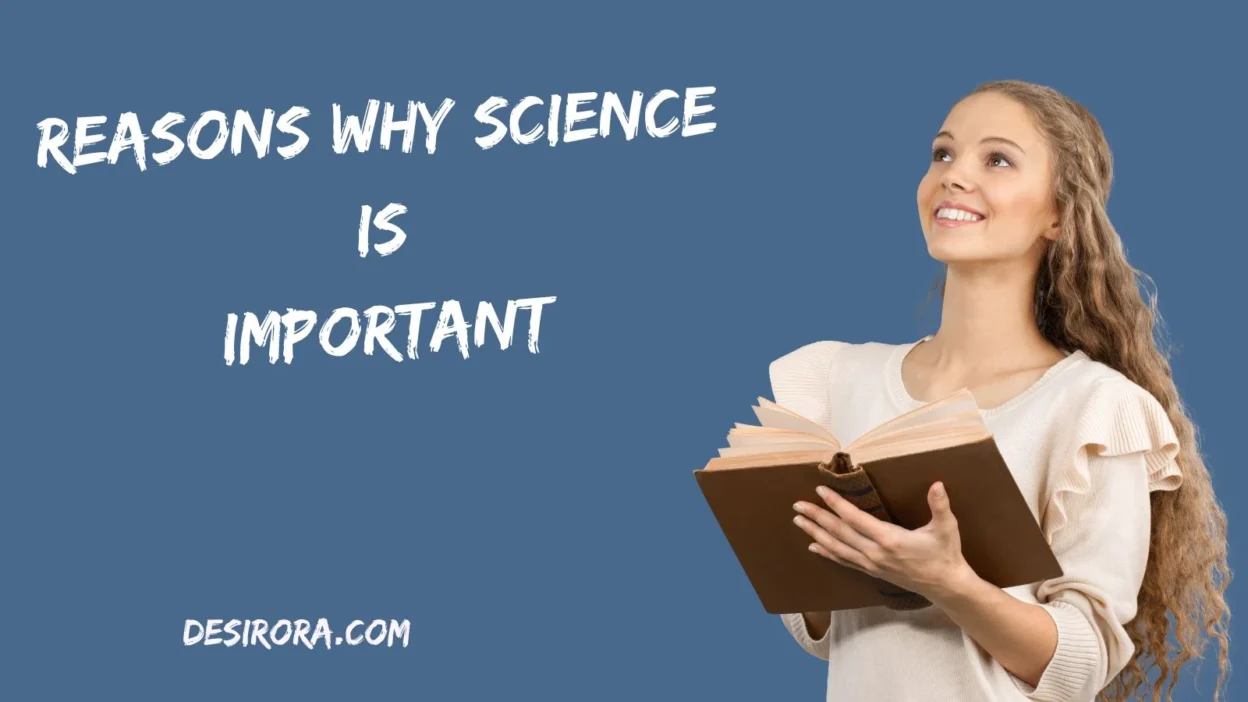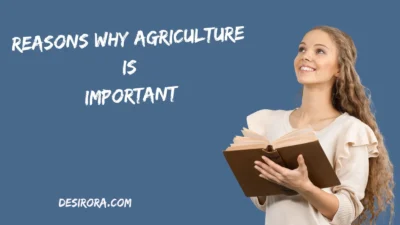Science is more than just a school subject or a set of laboratory experiments. It’s a way of thinking, exploring, and improving our world. When we ask “why is science important?”, we’re really asking: how does science shape our lives, our society, and our future?
In this article, we’ll walk through multiple angles — from everyday benefits to deeper societal roles — with real examples, types, idioms, synonym tables, and grammar notes. Let’s dive in.
What We Mean by “Science”
Before exploring reasons, it helps to define our terms clearly.
- Science is the systematic study of the natural world through observation, experimentation, and reasoning.
- It includes basic (pure) research (seeking knowledge for its own sake) and applied research (solving practical problems).
- The knowledge produced is tentative but reliable — always open to revision when new evidence appears.
“Science aims to build knowledge about the natural world. This knowledge is open to question and revision.”
So, when we talk about “science,” we mean both the process of discovery and the body of knowledge that results from it.
The Core Drivers: Understanding, Innovation, and Progress
These are foundational reasons that make science so valuable.
Understanding the World
Science helps us explain how things work — from why the sky is blue to how our bodies heal after injury. Without it, many phenomena would remain mysterious or left to superstition.
For example:
- Understanding germs, bacteria, and viruses led to hygiene practices and vaccines.
- Grasping electricity allowed us to create lighting, communication systems, and computers.
This explanatory power fuels curiosity and gives us a framework for asking better questions.
Innovation and Technological Growth
Knowledge from scientific inquiry often becomes the seed for innovation. When we discover something new, it inspires invention.
- The discovery of the structure of DNA transformed genetics, medicine, and forensics.
- Advances in materials science gave us microchips, solar panels, and stronger alloys.
- New scientific tools — telescopes, particle accelerators, AI — open fresh frontiers of understanding.
This cycle — knowledge → application → new knowledge — drives every modern industry.
Societal Progress and Human Well-Being
Science underlies most improvements in quality of life:
- Medical discoveries reduce mortality and improve health.
- Agricultural science increases food production and prevents famine.
- Environmental science helps manage resources sustainably.
Our daily comfort — from clean water and reliable electricity to vaccines and transportation — all stems from scientific progress.
How Science Improves Everyday Life
Let’s zoom in: how exactly does science touch your daily life?
Health and Medicine
- Vaccines, antibiotics, imaging technologies — all made possible through medical research.
- Understanding genetics allows early detection of inherited diseases.
- Public health science controls epidemics and prevents future ones.
Transportation and Infrastructure
- Physics and engineering make our bridges, roads, and tunnels safe.
- Aerodynamics and material science improve vehicle efficiency.
- Geoscience and planning help us mitigate natural hazards.
Communication and Technology
- Electronics and information theory made radios, computers, and smartphones possible.
- Algorithms and computing science power the digital world.
- Satellites allow GPS navigation and accurate weather forecasting.
Household and Daily Goods
- Chemistry gives us detergents, plastics, medicines, and fabrics.
- Physics powers our appliances — from refrigerators to fans.
- Food science keeps our food safe, nutritious, and long-lasting.
Environmental Management
- Climate and environmental sciences guide sustainable policies.
- Ecology helps conserve biodiversity.
- Hydrology ensures clean and safe water systems.
Science isn’t abstract — it’s what makes your world livable, connected, and comfortable.
Science and Society: Policy, Ethics, and Culture
Science doesn’t exist in isolation. It constantly interacts with values, politics, and culture.
Informed Public Policy
Governments rely on science to design better policies:
- Climate science informs energy and conservation laws.
- Epidemiology guides vaccination and healthcare strategies.
- Economic models integrate environmental and technological factors.
Science provides the evidence, but society decides values — what we choose to prioritize.
Democracy, Transparency, and Accountability
A scientifically literate public can question authority, detect misinformation, and demand evidence. In that sense, science supports democracy.
Transparency in research (open data, peer review) builds public trust and accountability.
Ethics, Values, and Responsibility
Science can tell us what is, but not always what ought to be. Ethical choices shape how we use discoveries — from genetic editing to artificial intelligence.
Deciding what to research and how to apply it involves moral judgment. Responsible science balances innovation with human welfare.
Culture, Inspiration, and Human Identity
Science isn’t just data — it’s part of our culture.
- Astronomical discoveries expand our sense of place in the universe.
- Historical scientists like Curie, Einstein, and Franklin inspire generations.
- The arts and sciences often cross paths — both seek truth and beauty.
Science enriches culture and fuels the human imagination.
Building Critical Thinking and Literacy Through Science
One of science’s greatest contributions is the habit of critical thinking.
Scientific Literacy and Skepticism
Scientific literacy means understanding:
- How science works (hypothesis, testing, evidence).
- How to evaluate claims critically.
- How to recognize bias or misinformation.
It’s a shield against pseudoscience, conspiracy theories, and manipulation.
Transferable Thinking Skills
Science trains us to:
- Ask good questions.
- Seek evidence before believing.
- Revise our views when new data arises.
These are powerful life skills that extend to every field — law, business, or daily decision-making.
Empowering the Individual
A scientifically informed person can:
- Make better health choices.
- Interpret news critically.
- Participate meaningfully in civic issues like climate change or technology ethics.
In short, scientific literacy = personal empowerment.
Science in Education and Workforce Development
To keep benefiting from science, we need to teach and apply it effectively.
Education That Connects to Life
Science education should focus on curiosity, creativity, and relevance — not rote memorization.
Hands-on experiments and real-world examples help students see science as a living subject, not just theory.
Undergraduate and Early Research
Early exposure to research teaches patience, problem-solving, and collaboration. Students who engage in science projects gain both skill and confidence.
Workforce and Jobs
Modern jobs increasingly depend on scientific and technical skills.
STEM (Science, Technology, Engineering, Mathematics) fields are among the fastest-growing sectors.
Even outside pure science roles, analytical thinking — a scientific mindset — gives workers a competitive edge.
Challenges, Misconceptions, and Limits of Science
Science is powerful, but it’s not infallible. Understanding its limits helps maintain healthy trust.
Science Is Tentative, Not Absolute
Scientific knowledge evolves. When new evidence appears, old models are updated.
That’s not weakness — it’s progress.
The ability to admit error and improve is what makes science self-correcting.
Misuse, Bias, and Misinterpretation
Science can be misused or distorted:
- Data may be cherry-picked.
- Studies may be biased.
- Media may oversimplify results.
That’s why peer review, replication, and transparency are crucial to maintaining credibility.
Resources, Inequality, and Access
Science requires investment, infrastructure, and opportunity. Many regions lack the resources for research or education, creating inequality in access to scientific progress.
Ethical Risks and Unintended Consequences
Powerful discoveries come with responsibility:
- Gene editing may raise moral dilemmas.
- AI can displace jobs or threaten privacy.
- Environmental interventions may cause new risks.
Science should advance hand-in-hand with ethics and foresight.
Looking Ahead: The Role of Science in the Future
Where is science heading — and how will it continue shaping our lives?
Frontier Fields and Global Challenges
The next decades will bring breakthroughs in:
- Renewable energy and climate technology.
- Biomedical science, genetics, and neuroscience.
- Quantum computing, robotics, and space exploration.
Science will remain our main tool for solving global problems like disease, hunger, and environmental change.
Interdisciplinary and Open Science
The future of science lies in collaboration — across disciplines, borders, and cultures.
Open data and shared knowledge accelerate discovery and make science more democratic.
Citizen Science and Public Participation
Ordinary people can now contribute directly through citizen science — from tracking wildlife to collecting climate data.
This involvement deepens public understanding and appreciation of scientific work.
Science and Artificial Intelligence
AI is rapidly transforming science — analyzing data, predicting outcomes, and even suggesting new hypotheses.
Still, human creativity, ethics, and intuition remain irreplaceable.
Together, humans and machines can explore frontiers faster and more responsibly.
Synonym Table, Grammar Notes & Useful Idioms
| Word / Phrase | Synonyms / Related Terms | Example Usage |
| Innovation | invention, breakthrough, novelty | “Innovation often begins with curiosity.” |
| Tentative | provisional, conditional | “Scientific knowledge is tentative — open to revision.” |
| Literacy | fluency, competency, understanding | “Scientific literacy empowers citizens.” |
| Ethical | moral, principled, conscientious | “Ethical research balances progress and responsibility.” |
| Empower | enable, equip, strengthen | “Science empowers people to make better choices.” |
Grammar Tip: “That” vs. “Which”
- That defines; which adds detail.
- The experiment that succeeded was repeated.
- The experiment, which was difficult, finally succeeded.
- The experiment that succeeded was repeated.
Useful Idioms in Context
- Build the foundation → Science builds the foundation for technology.
- Push the envelope → Researchers push the envelope of discovery.
- Bite the bullet → We must bite the bullet and face hard scientific truths.
- A double-edged sword → Technology is a double-edged sword — helpful yet risky.
Real-Life Example: The Pandemic Response
A clear demonstration of why science matters is how the world tackled COVID-19.
- Understanding: Scientists identified the virus, sequenced its genome, and studied its spread.
- Innovation: Vaccines, rapid tests, and treatments were developed using new biotechnologies.
- Policy: Data-driven models guided lockdowns and healthcare allocation.
- Critical Thinking: Science literacy helped communities combat misinformation.
- Ethics and Equity: Global vaccine access raised moral and social questions.
This example shows science in action — saving lives, informing policy, and guiding collective action.
Key Takeaways
- Science is both a method and a mindset.
- It explains, innovates, and improves life.
- Scientific literacy strengthens democracy and personal decision-making.
- Education and research fuel progress and jobs.
- Responsible science balances innovation with ethics.
- The future of science depends on collaboration, inclusion, and open access.
FAQs
Q: What’s the difference between basic and applied science?
A: Basic science seeks understanding for its own sake. Applied science uses that knowledge to create tools, products, or solutions for real-world problems.
Q: Can science provide absolute truth?
A: No. Science offers the best explanation based on current evidence. It evolves with new discoveries.
Q: Why is scientific literacy important for everyone?
A: It helps people evaluate claims, make informed choices, and recognize misinformation.
Q: Is science value-free?
A: Science itself aims for objectivity, but how it’s used — funding, application, or policy — reflects human values.
Q: Can non-scientists contribute to science?
A: Absolutely! Through citizen science projects, education, volunteering, and promoting evidence-based discussion.
Conclusion
Science is the backbone of modern civilization — the silent force behind every comfort, innovation, and safety measure we enjoy. It drives progress, deepens understanding, and gives us tools to tackle challenges wisely.
Supporting science means supporting a better future — one built on curiosity, truth, and shared responsibility. Whether you’re a researcher, student, policymaker, or everyday citizen, science affects your life — and your choices can shape its future.




